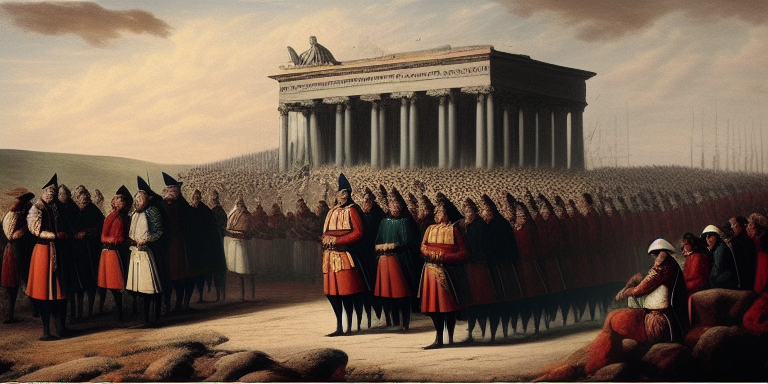An Introduction to Linux and Antitrust Laws
Antitrust laws are designed to ensure competition in the marketplace and protect consumers from monopolies. These laws can be used to prevent a single company from gaining too much control of a market, which could lead to higher prices, reduced innovation, and other anti–competitive practices.
Linux is an open–source operating system that has been around since 1991. It is a powerful and flexible alternative to other operating systems, and it has become increasingly popular over the years. As Linux has grown, some have raised concerns that the market may become too dominated by the open–source operating system, which could lead to higher prices and reduced innovation.
In response, the U.S. government has taken steps to ensure that competition remains in the market. For example, the Federal Trade Commission has issued several orders that require companies to make their software available for use on Linux–based systems. In addition, the Department of Justice has opened an antitrust investigation into the Linux market to ensure that there is no anti–competitive behavior taking place.
Overall, antitrust laws and Linux can coexist in the market, provided that the right steps are taken to ensure competition. By taking these measures, the government can help protect consumers and ensure that they get the best prices, the most innovative products, and the most reliable services.
A Brief History of Linux
Linux is a Unix–like operating system created in 1991 by Linus Torvalds, a computer science student at the University of Helsinki in Finland. Torvalds was inspired by the success of the GNU project, which was created in 1983 to develop a free, open–source Unix–like operating system. Torvalds wanted to create an operating system that was free and open–source, and he eventually released the first version of Linux, Linux 0.01, on October 5, 1991.
Linux quickly became popular due to its open–source nature, which allowed anyone to modify and redistribute the source code. This allowed for Linux to be adapted for different types of hardware and for different types of applications. Linux was also popular due to its reliability, performance, and security.
In the early 2000s, Linux gained further popularity due to its use in the web server market. Apache, one of the most popular web servers, began using Linux in 2000 and the majority of web servers now run on Linux.
Today, Linux is used in many different types of applications, ranging from embedded systems to supercomputers. It is also used in most of the world‘s top 500 supercomputers, including the world‘s fastest computer, the Sunway TaihuLight.
Linux is a key part of the open–source software movement and is used in many different products and services. Some of the most popular Linux distributions include Ubuntu, Fedora, Red Hat, and Debian. These distributions are used by millions of people around the world.
Advantages and Challenges to Linux and Antitrust
Linux offers many advantages to users and businesses alike. It is a free, open source operating system, meaning that anyone can access, modify, and use it for any purpose. It is extremely secure since it is distributed with source code, allowing users to examine it for potential security flaws and fix them. It is also highly customizable, with a wide range of software packages and applications available.
However, Linux does have some drawbacks. Since it is open source, malicious users can access and modify the source code to create malicious software. Additionally, since it is not owned by any company, there is no central authority to ensure that updates and patches are released in a timely manner.
Antitrust laws are laws that regulate the activities of companies that have a monopoly or near–monopoly in a particular market. These laws are designed to promote competition and protect consumers. They are intended to prevent companies from engaging in anti–competitive practices such as price fixing, predatory pricing, and other unfair business practices.
The advantages of antitrust laws are that they protect consumers from unfair pricing and other predatory practices. They also ensure that companies are competing on a level playing field, making it easier for new businesses to enter a market and compete.
The challenges of antitrust laws are that they can be difficult to enforce, and companies may be able to find ways to circumvent them. Additionally, some argue that antitrust laws can stifle innovation by preventing large companies from entering new markets and competing against smaller companies.
The Future Outlook
The future outlook of Linux and antitrust is uncertain but could be very positive. Linux is a type of open source software, meaning that its code is available for anyone to use and modify. This has made it popular for businesses that need to customize their software for specific use cases. The open source nature of Linux has also allowed it to grow in popularity as a general purpose operating system, as its flexibility and customization options are appealing to many users.
At the same time, antitrust laws are meant to protect consumers from unfair business practices such as price fixing or other anti-competitive measures. These laws can be used to protect Linux users from companies that might try to impose restrictions or fees on the use of Linux. This could help the Linux community to continue to thrive and compete with proprietary software solutions.
Ultimately, the future of Linux and antitrust will depend on how the courts interpret the various laws and regulations. If the courts continue to uphold the principles of open source software, then Linux should continue to thrive. On the other hand, if the courts start to give too much power to companies that use proprietary software, then this could create a situation where Linux users are at a disadvantage. It will be important to watch how these cases are decided as they could have a significant impact on the future of Linux and antitrust.

